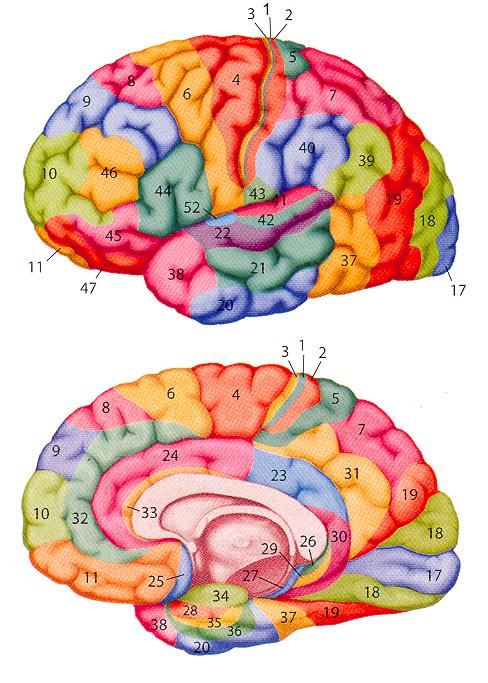Signs You Have a Magnesium Deficiency
The Importance of Magnesium
Magnesium is one of the alkaline earth metals, with the atomic number 12. While it is the ninth most abundant element in the entire universe, the eighth most abundant in the crust of the Earth, and the fourth in the entire planet, it is unfortunately not as plentiful in the topsoil in most areas.
One of the properties of magnesium is that it is very water soluble, and therefore susceptible to sink into the deeper parts of soil with rainfall over time. Plants need adequate magnesium to grow optimally, and deficiencies can lead to a less abundant supply of fruits and vegetables.
The need for magnesium is something humans and other animals have in common with plants. The majority of the world's population is magnesium deficient, and it is a potential source of a host of health problems, especially as a person ages. The source of many complications of aging can be traced back to low magnesium levels as at least one of the factors. It is quite likely the most underrated nutrition related epidemic of recent times.
More than 300 different enzymes in our body require magnesium in order to optimally perform their functions, including the very synthesis of DNA and RNA. It affects cellular regeneration and expression. Along with enzymes, other minerals such as calcium are dependent upon magnesium to be processed by the body. Consequently, many dietitians refer to it as the "master mineral", because its uses are by far the most versatile.
One problem with some of the symptoms of low magnesium is that they can potentially have other causes as well. Nevertheless, if you suffer from one or more of these conditions frequently or chronically, it would be a wise idea to get your magnesium levels checked, or try increasing it in your diet, either through food, or supplementation, or both. The body has a decent upper level tolerance for magnesium; it is difficult to "overdose." It is far preferable to take in a little more than you need, than to not have enough.
In order to accurately check your levels, the best method is known as the Exa test. When magnesium gets into the body, approximately one percent of it operates in the blood stream. The majority goes to the organs and tissue. Hence, a blood test will not give an accurate account of your magnesium level.
The recommended daily intake by the USDA is 240-420 milligrams per day. Many dietitians, however, recommend much higher consumption, with some suggesting as much as twice that amount. It is not recommended to go too much higher than double, however, because while it is difficult to overdose on this valuable mineral, it is not impossible. Too high of a concentration of magnesium could lead to diarrhea, or even an irregular heartbeat and slowed breathing. Again, the body has a considerably high tolerance, just take some care to not overcompensate.
If you suffer from any of the symptoms below, it may be a good idea to check your diet. Playing the odds, you are most likely magnesium deficient, and it would most likely behoove you to make some nutritional adjustments, and also purchase a high quality supplement.
Migraine Headaches
Those who get migraines are all too familiar that there is almost nothing that will bring about them ending other than to lie down and wait for it to run its course. Different people attempt various solutions, usually with meager results.
There is very little that is understood about the mechanism of biological actions that lead to a migraine forming among the medical community. However, what they do know is that people who get them usually have lower magnesium levels than those who do not. It is possible that migraine sufferers also may be genetically predisposed to having a lower absorption percentage of magnesium with the same consumption.
Regular adequate magnesium intake can both prevent and possibly help accelerate the relief of migraine headaches after onset. This is a subset of people who could especially benefit from good supplementation.

Rise in Calcium Levels
In reference to the first section, many other essential minerals are dependent on magnesium to activate their processing in the body. Calcium is one of these minerals. While on the surface, as the subtitle says, to have more calcium in the body, where it is located is extremely critical. The benefits of calcium happen when it goes to the bones. Magnesium is required for calcium to be transported to the bones. If it is ingested and not directed to the bones, that means it stays in the bloodstream, and builds up plaque. The result is calcification, hardening of the arteries, and blockages. This renders you more susceptible to heart disease and strokes.
Memory Loss
Blood is the body's life force. In order for any organ, including the brain, to function at its full potential, there must be adequate blood flow. Magnesium improves blood flow to the brain - and everywhere else, in more ways than one.
As mentioned above, it helps prevent calcium buildup in the arteries. It diminishes the possibility of blood platelets sticking to arterial walls. In addition, magnesium also relaxes arterial muscles and allows them to dilate, and the expansion facilitates the free flow of blood.

High Blood Pressure
Your body's organs naturally want to function at maximum capacity. Therefore, if there is a deficiency, the body will automatically react to attempt to fix it. Adequate blood flow is necessary for optimal function of organs and tissues. If there is a problem with blood flow, the heart will work more strenuously to fix the issue.
Additionally, the higher risk of plaque buildup and narrowing of the arteries causes there to be more pressure as the heart labors to force blood through the passages and to the organs and tissues. While magnesium deficiency is certainly not the only cause of high blood pressure, it very often is a significant contributing factor.
Complications of Diabetes
Most often, people with type II diabetes also predictably have low magnesium levels. Magnesium is helpful in prevention of this condition. However, if you have already acquired it, it is absolutely imperative that you get enough magnesium. Of the more than 300 functions that it performs, one of them is assisting in regulating blood sugar. If your blood sugar goes awry too frequently, it will cause a series of serious, or even fatal complications. Organs can be damaged or fail completely, poor heart function will put you at high risk of attacks.
If you are a prediabetic, adequate magnesium levels can help prevent you from becoming a full diabetic. In addition to regulating blood sugar, it also increases insulin sensitivity.

Muscle Cramps
The main cause of muscle cramps is a general depletion of the body's minerals. When you exercise, and perspire, your body does not only shed water, but also minerals. That is why sweat has a scent and a salty taste to it. If you do not keep hydrated during your workout, you will be more prone to muscle cramps. The three elements most responsible for prevention of cramps are potassium, magnesium, and calcium.
Likewise, if your magnesium levels are low to begin with, it will greatly exacerbate that problem, even when you are not exercising. Since calcium needs magnesium to perform its functions, if you are short on the latter, the calcium in your system will also be less bioavailable.
To prevent muscle cramping, keep your mineral levels adequate, especially magnesium. Also, do not drink distilled water during your workout. Distilled water is pure water that is free of minerals. Opt for tap or mineral water for sufficient replenishment.











